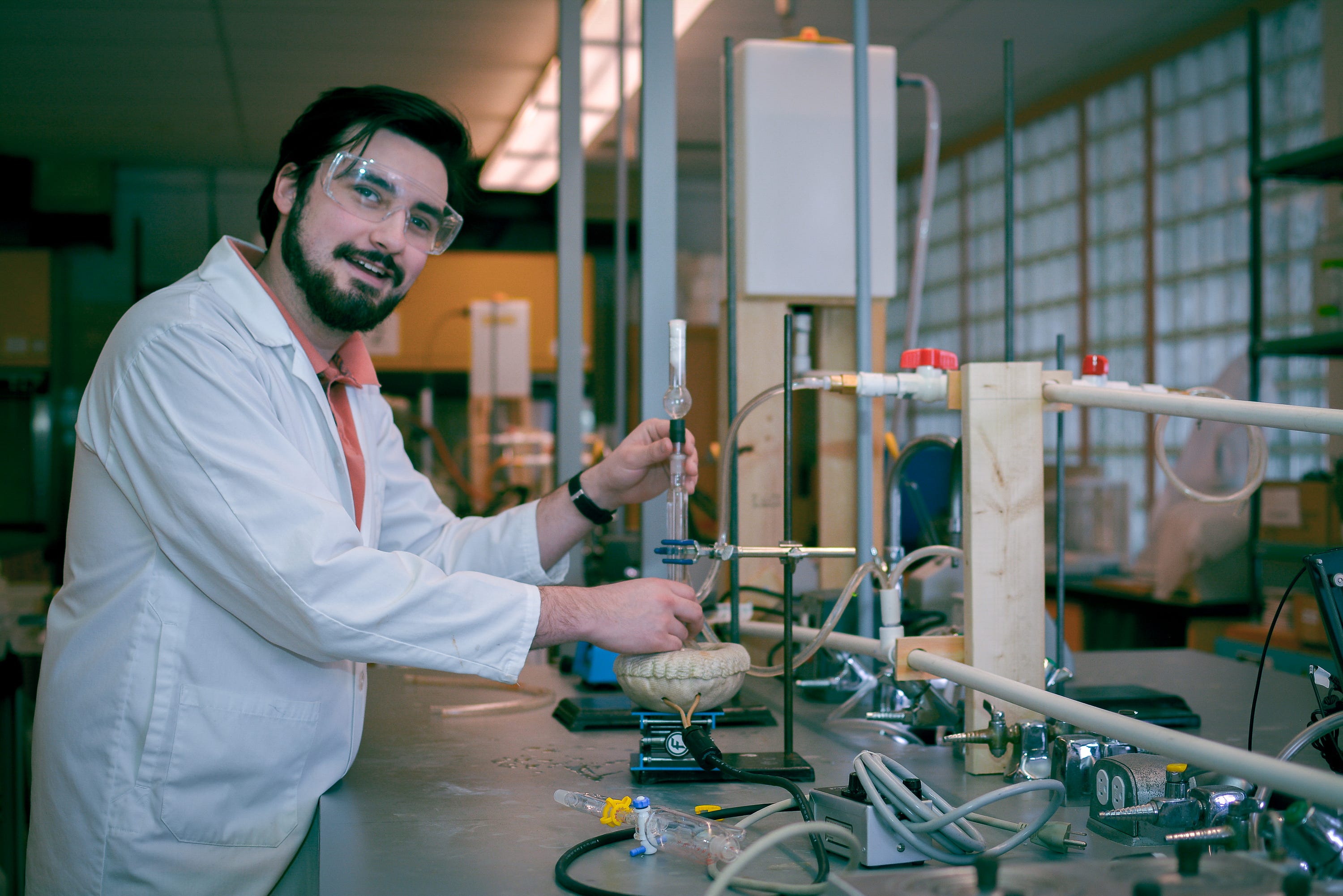Previous Projects

The University of Alberta has a huge geography, with nearly 500 buildings, 40,000 students, and five campuses encompassing farmland, hospitals, heritage sites, forests, arenas, state-of-the-art labs, and more. This is a community that offers a wealth of opportunity for studying real world challenges and implementing cutting-edge solutions.
Campus as a Living Lab research projects use the university’s campus as a testing ground for sustainability solutions. See how these projects connect the classroom to the real world, enabling students to find the solutions and generate the data that we need to build a better world—the work that University of Alberta academics are doing every day.
Energy and Climate
Hydrogen fuel cells
In 2019, Elizabeth Gierl completed a URI-funded research project on hydrogen fuel cells, as part of her work leading the U of A EcoCar Team. Elizabeth talks about her experiences and growth from working on the project as a part of Marc Secanell’s Energy Systems Design Laboratory.

Solar power: Coming to a greenhouse near you
With funding from the Campus Sustainability Grants program, students, faculty and staff from different disciplines are coming together to develop sustainable gardening practices powered by the sun.
Read Story
Waste to methane
Using fat-rich food waste from HUB Mall, environmental engineering master’s student Bappi Chowdhury may have found a way to dramatically increase the production of biomethane from food waste.
Read Story
Carbon footprint of food services
Stephanie Le used data from Dining Services to estimate the carbon and nitrogen footprint of food purchases in the university’s cafeterias and for catering.
Read Report
Vehicle fleet carbon footprint
Mayank Kumar compiled fuel consumption data for the university’s vehicle fleet and studied use patterns to recommend ways to reduce the fleet’s carbon footprint.
Read ReportWaste and Pollution
Air quality on campus
For Sarah Styler’s CHEM 305 class, her students used AirBeam monitors, portable, low-cost instruments for measuring concentrations of fine particulate matter. Students measured PM2.5 levels in locations including university cafeterias.
A discussion of this class pedagogy was published in Analytical and Bioanalytical Chemistry.
Read paperReducing food waste
For her AREC 173 community service-learning project, Georgia developed a workshop for Sustainability Awareness Week. Her group showed participants ways to reduce food waste at home through composting, storage, meal planning, and more.

Reducing water waste in labs
Alex Schoeddert found a new way to reduce water waste in the Campus Saint-Jean chemistry labs. His hand-built water recycling system saves up to 7,200 litres of water a year.
Read storyFood and Equity
Cooking and culture
For an earlier AREC 173 class, a group conducted a Cooking and Culture workshop, providing students with resources and recipes for eating more sustainably.
Download recipe booklet
Indoor, edible gardens
In only three weeks, Hayley Wasylycia built a Growroom, an open-source design for an indoor edible garden, for a showcase in the Students’ Union Building.
Read storyAn international lens on food
Juanita Gnanapragasam researched the difficulties international students face in maintaining a healthy, ethnic diet, given their challenges adapting to Alberta’s food landscape. Her report makes recommendations for the University of Alberta.
Read ReportConverse and cook
Juanita Gnanapragasam’s work led her to co-found the group Converse and Cook, which helps students find culturally relevant and nutritious foods. In 2019, they published Our Stories, Our Food a University of Alberta cookbook.
Read about the cookbookProject Listing
Browse our comprehensive listing of Campus as a Living Lab projects. Reports and other materials are available for some projects. Reach out to us for more information.
Inspired? Start your own project
Learn how you can build on one of these projects, or develop your own from scratch. The Sustainability Council can help you find the funding, contacts and anything else you need to succeed.
Get Started